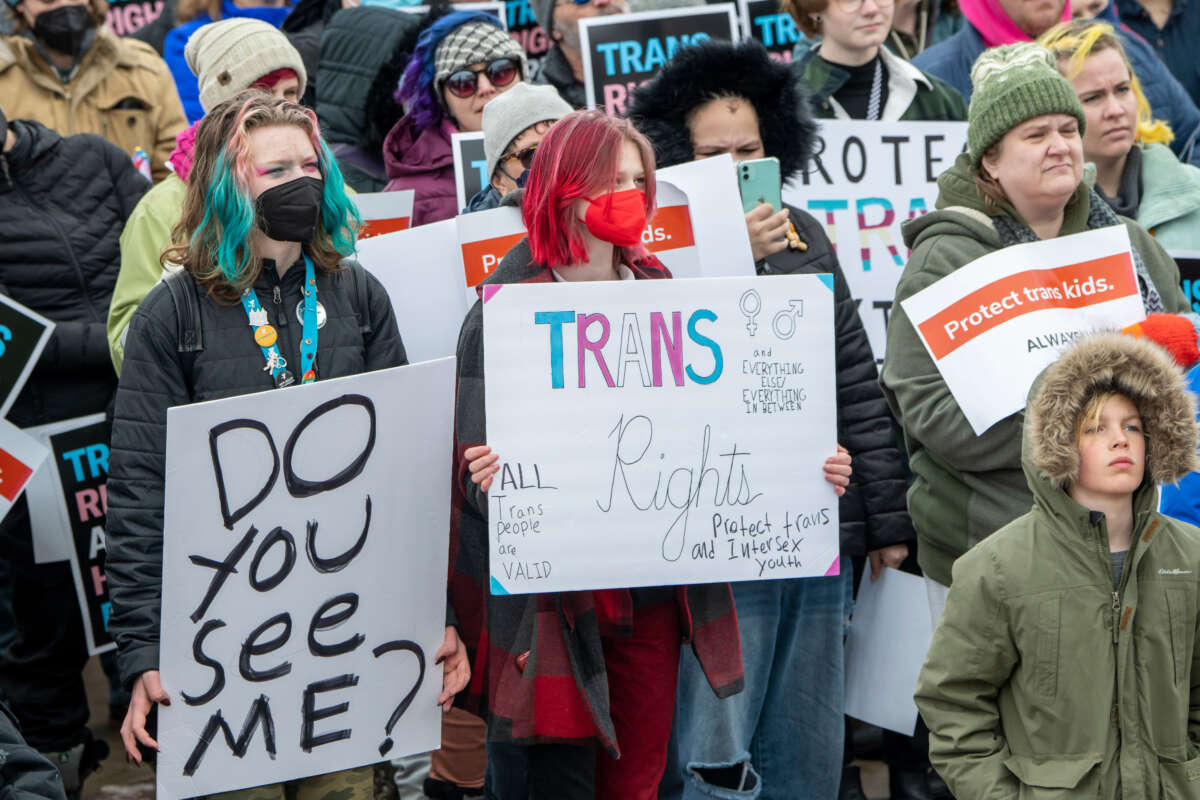A federal judge in Arkansas has struck down the state’s ban on gender-affirming care for transgender youth, writing that it is unequivocally unconstitutional.
Judge James Moody delivered his opinion on Tuesday, ruling that the regulation, which was passed by the Republican-controlled state legislature in 2021, unlawfully bars access to effective medical treatments for transgender and nonbinary children in the state. The law also infringes upon the constitutionally protected speech rights of doctors, who are barred under the law from discussing options with patients or their families regarding where they can seek the treatment they need, Moody said.
The case has been watched closely, as it was the first to challenge a state’s ban on gender-affirming care for trans youth.
Act 626 of 2021 was called by its opponents the “Save Adolescents from Experimentation Act” — a grossly misleading and transphobic title, as the type of care it bars is not experimental but rather consists of carefully studied treatment options that have been proven to be effective. The law was the first in the country to ban gender-affirming care for transgender youth.
Although the ruling only applies to the Arkansas law, it will likely be cited in cases throughout the country where lawsuits against similar bans have been filed. In addition to Arkansas, 19 states have passed bans on gender-affirming care, though several of those bans are currently blocked by preliminary injunctions.
Moody’s ruling is the first such judgment to find bans of this type unconstitutional.
Gov. Sarah Huckabee Sanders (R) said that the state intends to appeal the ruling. But legal experts say this will be difficult to pull off because the ruling demonstrates that the state did not have a compelling reason to ban gender-affirming care for young trans residents.
“[Moody’s] findings of fact issued Tuesday could be the most important aspect of his decision,” legal analyst Chris Geidner said on his Substack account. “Because trial judges are able to review the evidence and are closest to the case at trial, their findings of fact are accepted on appeal unless the appeals court finds that those findings constitute a ‘clear error,’ a deferential standard.”
Notably, the state called upon so-called experts who didn’t actually have the necessary qualifications to discuss gender-affirming care. One supposed expert, a doctor, had never even “treated a patient for gender dysphoria,” Moody pointed out.
Ultimately, the state’s arguments for why it should be allowed to deny medical care to transgender youth failed to hold up in the face of actual evidence that the plaintiffs presented, Moody said.
“Rather than protecting children or safeguarding medical ethics, the evidence showed that the prohibited medical care improves the mental health and well-being of patients and that by prohibiting it, the state undermined the interests it claims to be advancing,” the judge wrote in his order.
Citing the Equal Protection Clause of 14th Amendment, Moody noted that parents “have a fundamental right to seek medical care for their children and, in conjunction with their adolescent child’s consent and their doctor’s recommendation, make a judgment that medical care is necessary.”
The act also violated the First Amendment speech rights of doctors, Moody wrote, limiting their ability to inform patients where gender-affirming care treatments may be available for them.
Chase Strangio, a transgender rights advocate and an attorney at the American Civil Liberties Union who represented the families in the case seeking to have the law overturned, celebrated the ruling.
“This victory shows that these laws, when tested by evidence, are indefensible under any standard of constitutional review,” Strangio, who himself has benefited from gender-affirming care, said in a statement. “We hope that this sends a message to other states about the vulnerability of these laws and the many harms that come from passing them.”
